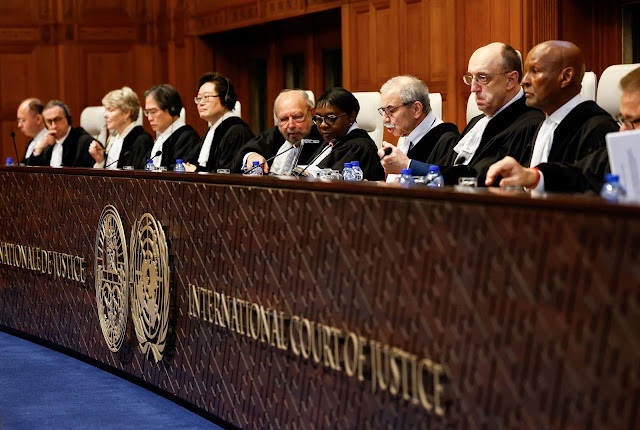Something changed in Gaza. After months of rejecting Israeli cease-fire proposals and holding out for more concessions, Hamas has begun to offer concessions of its own. Israel is closer than ever to freeing many of its remaining hostages, and it has gained the leverage to demand terms that protect the strategic gains of the war.If you believe the media drumbeat—that Israel’s war effort is futile, its strategy absent, and its political isolation growing—it’s impossible to account for the breakthrough. Why, after months of contemptuous stalling, did Hamas begin to bend?“Two reasons,” says Israel Katz, Israel’s foreign minister, in an interview at the Journal’s office. “One, they understand now that there will be no cease-fire without a hostage deal. Two, the IDF is acting aggressively against the terrorists in Gaza. Especially important was entering Rafah,” Hamas’s stronghold at the southern end of the strip.Israel cut off Hamas’s supply routes and now holds Hamas “by the throat,” as Prime Minister Benjamin Netanyahu recently put it. Senior terrorists are dropping at a faster clip as Israeli intelligence closes in; half of Hamas’s military leadership has been eliminated. Even after a large Israeli bombardment to kill Hamas’s military chief, Mohammed Deif, who is considered unlikely to have survived, Hamas barely attacked in response and rushed to clarify that it isn’t leaving negotiations. “Hamas is under much more pressure now,” Mr. Katz says. “That’s what made the difference.”It shouldn’t be a surprise that pressure on Hamas could yield gains in negotiations. Yet for months Western powers took the opposite approach, pressuring Israel to end the war and leave Hamas victorious. They called for an “immediate cease-fire,” increasingly delinked from a hostage deal. Humanitarian groups upbraided Israel and kept quiet about Hamas. The International Court of Justice and the International Criminal Court menaced Israel with bogus prosecutions and tribunals.The Rafah operation was delayed by months, during which Hamas seemed to be under less pressure than ever. The White House withheld weapons from Israel. Warnings of a humanitarian disaster poured in from all quarters. On May 6, Israel invaded Rafah anyway.“And we were right,” says Mr. Katz. “Everyone knows it now, even the U.S., because everyone warned that it would be a catastrophe. It’s a war, yes. It’s not a picnic. But they said that it would take four months to evacuate the population. It took only days.” More than a million Gazans quickly evacuated Rafah to designated safe zones.No critics recanted, but the pressure on Israel quietly diminished. As if embarrassed, the world suddenly took note that Hamas is the obstacle to a hostage deal. The White House made the point, especially after airing on May 31 an Israeli offer that Hamas went on to reject. The U.N. Security Council ratified that offer. Even the Palestinian Authority, which glorified the Oct. 7 massacre, now blames Hamas for the continuation of the fighting. Hamas, the odd man out, had to admit there is no cease-fire on the horizon unless it releases the hostages.
In the case of the 2023-24 Gaza war, Western critics have almost comically misunderstood what the Israeli military is trying to do. The flaw in Western analysis is always the same: “We wouldn’t do it that way.” Yet the IDF has absolutely no intention of using the clear-hold-build COIN [counterinsurgency] tactics the West tried in Afghanistan and Iraq. Why would it? Those tactics were an unmitigated disaster in both campaigns, which ended in humiliating defeats at the hands of technologically inferior armies.
If you look at what is possible, what the best version of “success” looks like, and what Israel is doing, I contend that in Gaza we are seeing a masterpiece of operational design within severe politically imposed limitations. The IDF is not trying to clear Gaza. With no ability to impose a political arrangement in Gaza, and a Gazan desire for continued Hamas rule, the IDF answer is: Let them have Hamas. But the version of Hamas that Gazans will get is one heavily degraded militarily, and, most importantly, with vast swaths of their tunnels and civilian-embedded infrastructure destroyed. In other words, the IDF aims to replace Hamas 3.0—the version that fought three wars against Israel and then launched the brutal Oct. 7 surprise attacks—with Hamas 1.0, which took over the Gaza Strip from Fatah in June 2007.To accomplish that end, the IDF has methodically razed what Hamas infrastructure they could find in Gaza City, Khan Yunis, and now Rafah. They have secured the Netzarim corridor to control freedom of movement from south to north. It looks like they are trying to do the same thing along the Philadelphi Corridor and Gaza’s southern border with Egypt, to cut off the inflow of weapons and supplies to Hamas.
Hamas's military wing no longer operates in large formations and has shifted to guerrilla warfare. The working assumption on the ground is that Hamas can plan attacks but currently prefers not to fight, thus retreating from any place the IDF reaches.It is assessed that Hamas's retreat policy is due to the loss of experienced operatives and commanders and a shortage of weapons. Hamas's equipment shortage is so severe that they recently started using "reverse" cameras taken from vehicles as security cameras.
The IDF and Shin Bet (Israel Security Agency) have uncovered a treasure trove of Hamas intelligence, consisting of stacks of documents, files, and computers,..."The amount of intelligence accumulated so far in the hands of Shin Bet and Military Intelligence allows us to dismantle Hamas from within," said a senior security official exposed to the heaps of documents.
|
Or order from your favorite bookseller, using ISBN 9798985708424. Read all about it here! |

|

 Elder of Ziyon
Elder of Ziyon







































